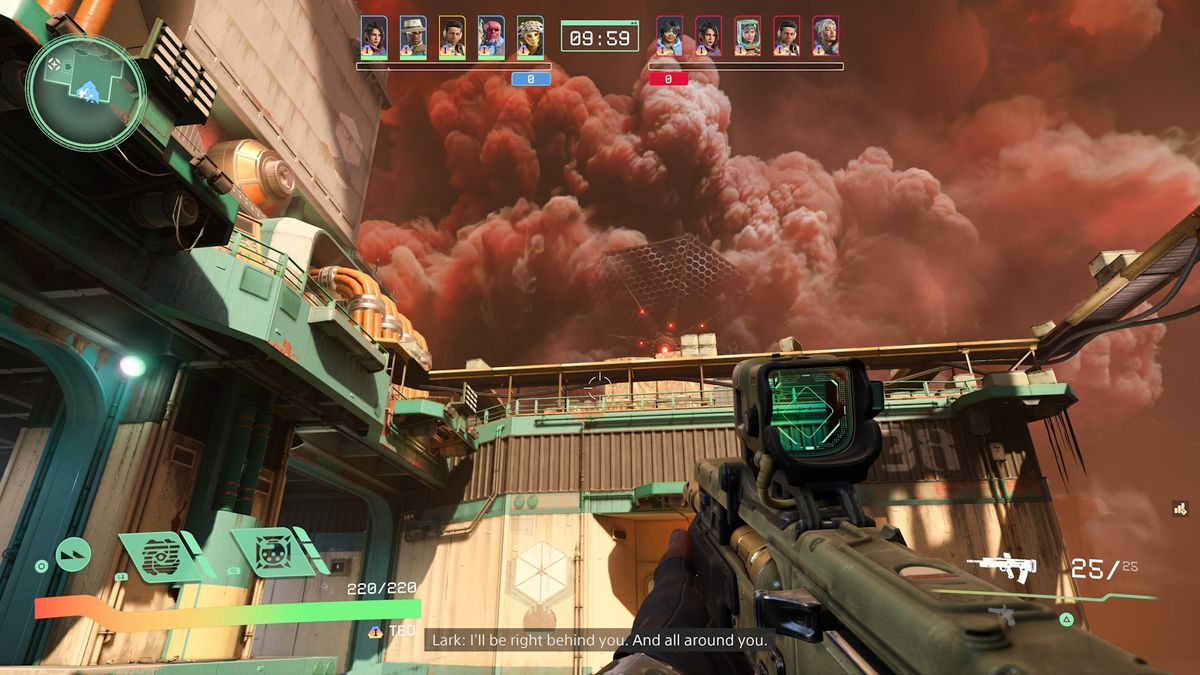Concord makes a terrible first impression. After several cutscenes in which the characters speak in two tones – annoyingly superficial or overly serious – you’re thrown into a tutorial that feels comprehensive… until you actually play the game. Only then do you realize that you have to learn to crawl before you sprint. Chaos and death reign as you try to figure out what exactly is going on and why a giant “We’ve Got Drax Home” creature keeps beating you into an early grave. Fight through it, though, and Concord starts to show a better version of itself. One that, given enough time, might even be worth sticking with.
On the surface, Concord combines an Overwatch-style cast of heroes with fast-paced Call of Duty-style action. You choose from a crew of 16 Freegunners (the game’s term for the confidently wild underdogs you play) and jump into 5v5 team action on a selection of medium-sized maps across various planets. Concord aims for a balance of strategy and skill, offering maps that suit all playstyles – from those who prefer long open spaces for sniping to bunny hoppers who like to confuse others with quick movements in tight spaces. While clever play like setting traps with specific characters or learning the map layout to quickly flank an enemy can give you an advantage, skilled marksmen can negate this by landing headshots, making matches a fun contest of wits versus brawn.
Currently, however, there are few modes you haven’t experienced before. At launch, there are six match types spread across three different playlists. Brawl offers Team Deathmatch – does what it says on the tin – and Trophy Hunt, which requires you to soak up the markers of downed enemies. Then there’s Takeover, which focuses on objective-based signal hunting and area control – where you capture either static or moving zones and fend off the enemy. Finally, there’s Rivalry, a no-respawn playlist for Cargo Run (take a device, place it, and secure the area) and Clash Point (control an area or eliminate the opposing team).
The small number of match types on offer is disappointing; after all, I can’t keep asking my teammates to go to B instead of dying at A. Add to that the fact that you’re funneled into playlists rather than being able to play mix-and-match or simply choose a quick play option, and it feels a little thin in the long run. But that familiar framework is balanced out by some bolder choices developer Firewalk makes when it comes to how you use your characters, which hints at how Concord can stay in your multiplayer rotation.
I need a hero
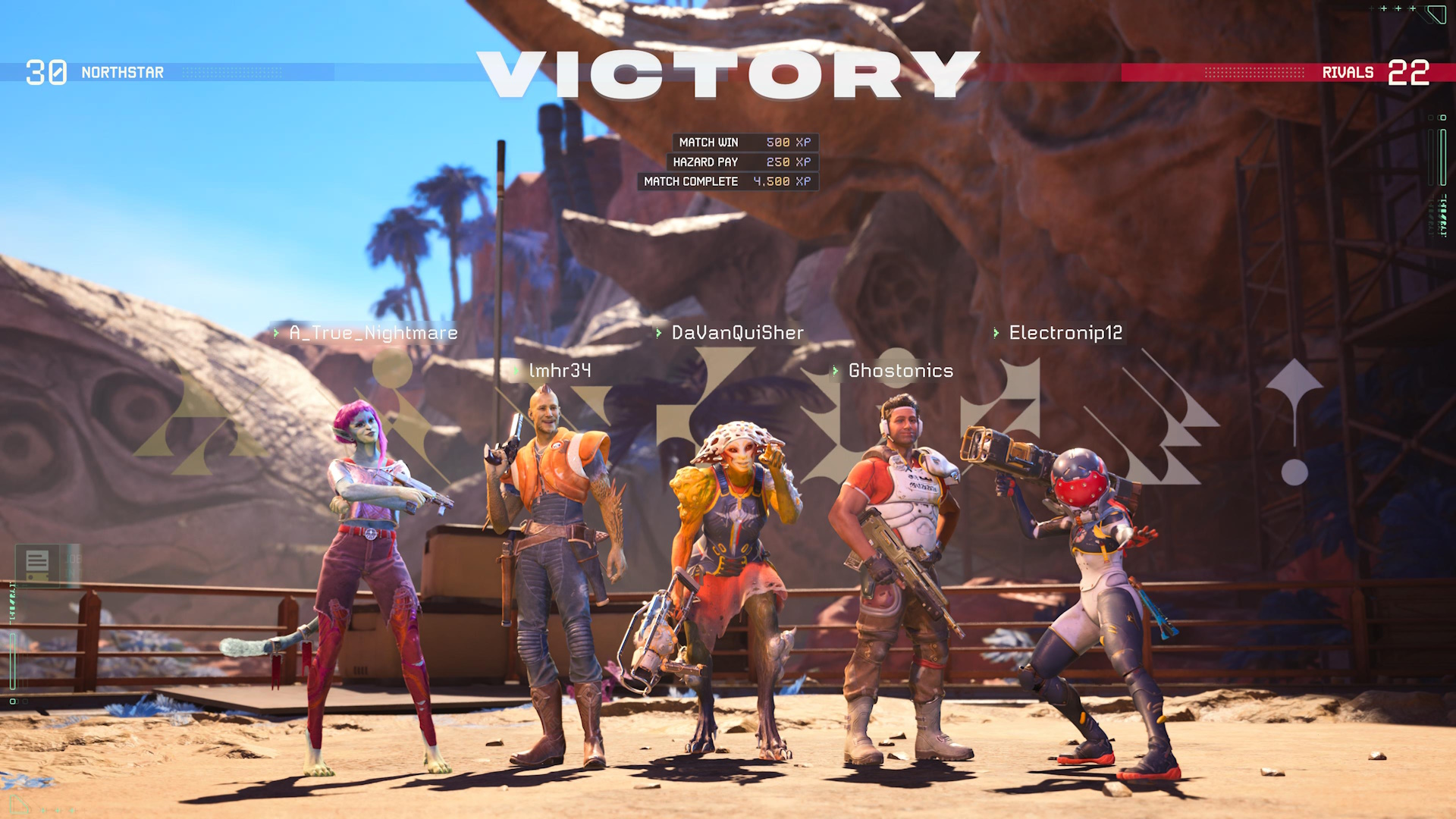
Short info
Release date: 23 August 2024
Platform(s): PC, PS5
developer: Firewalk Studios
editor: Sony Interactive Entertainment
Each round, you choose a freegunner who belongs to a specific class. If you choose Teo – your classic soldier type to ease you into military shooters – you choose a Ranger, a class with reduced weapon recoil. If you choose Lark – a space mushroom who can plant spores that buff teammates – you get a Tactician, a group that boasts faster reload speeds. So far, so hero shooters. The genius twist to the formula, however, is that the class system permanently Buffs every time you switch between different roles.
Let’s say you prefer to play as a sniper. If you choose Vale and stick with her, you’ll have to deal with her long reload times and reduced health. However, if you start as our old tactician buddy Lark, you’ll get a permanent buff for faster reload times. Then if we switch to Emari, who’s an anchor (increased healing rate), you suddenly have a far more effective Vale to use later in the game. This could easily be dismissed as a gimmick if these buffs weren’t noticeable, but each character feels extremely different on the battlefield. While Teo feels like you’re stepping into a Halo game, with floating jumps that allow you to make up ground quickly, playing as ultra-tank Emari means you’ll trudge painfully into danger but take a hell of a lot more bullets, while the nimble, missile-spitting Roka can triple jump in the air like Quake never went out of style.
Once you get used to this system, which naturally encourages you to explore the depths of each character, Concord finally offers something more engaging than just another average live service shooter. While the maps and modes may feel overly familiar, the strategy of creating a party of heroes that suit your playstyle can make a standard team deathmatch feel much more rewarding as a result.
Motley who?
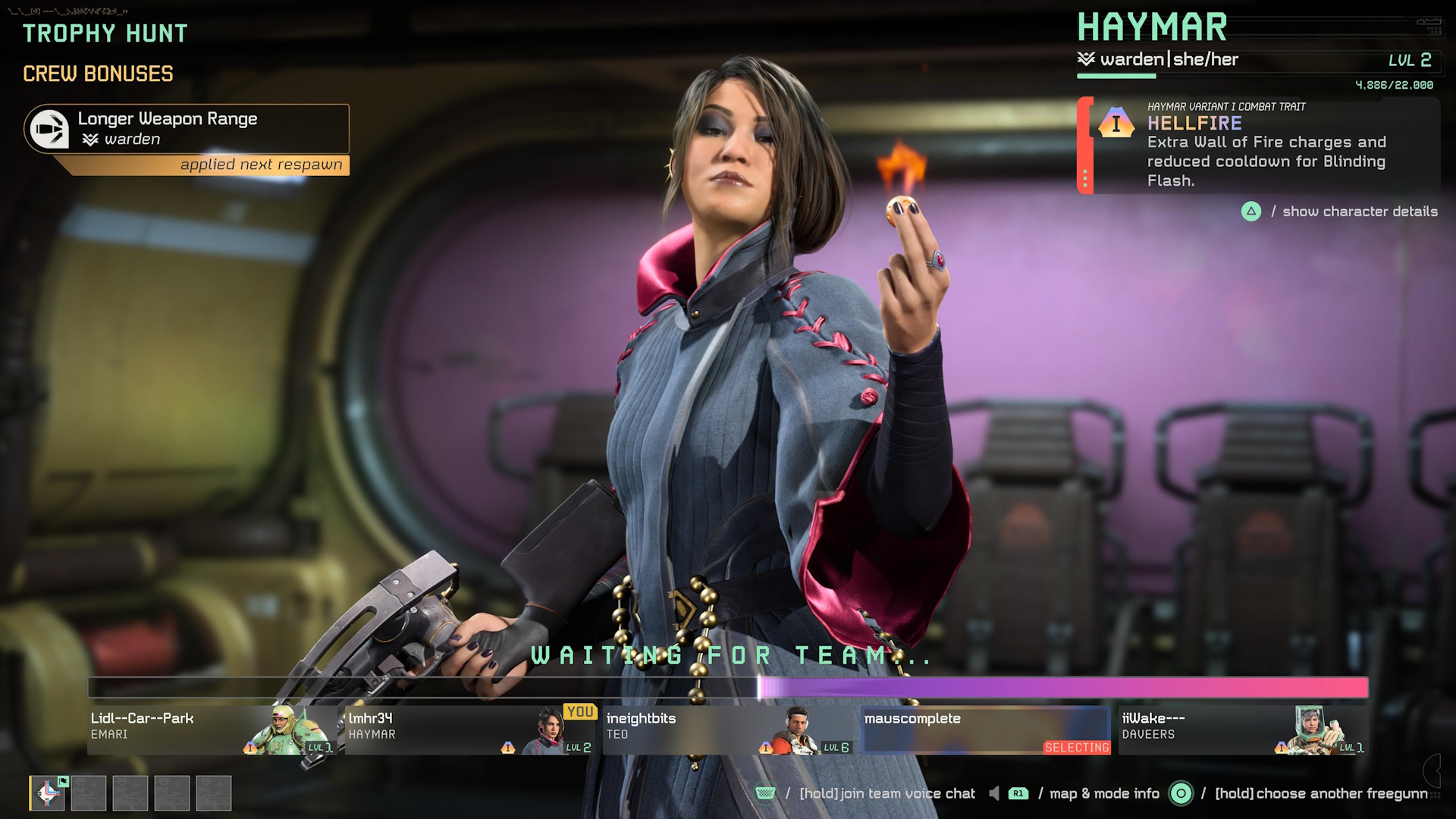
For all of Concord’s strong fundamentals, however, there’s also a peculiar and distracting focus on the universe’s lore and characters. The crux of the matter is that your crew of freegunners have come together on the North Star, each bringing their own baggage in the fight against the Guild and other ship crews running illegal jobs across the galaxy. Each week we’re treated to a new cutscene that expands on their story, and there’s also a Galactic Guide that’s chock-full of lore from the planets you’ll be fighting on to the shipping lanes – yes, really – between them.
Gun barrel
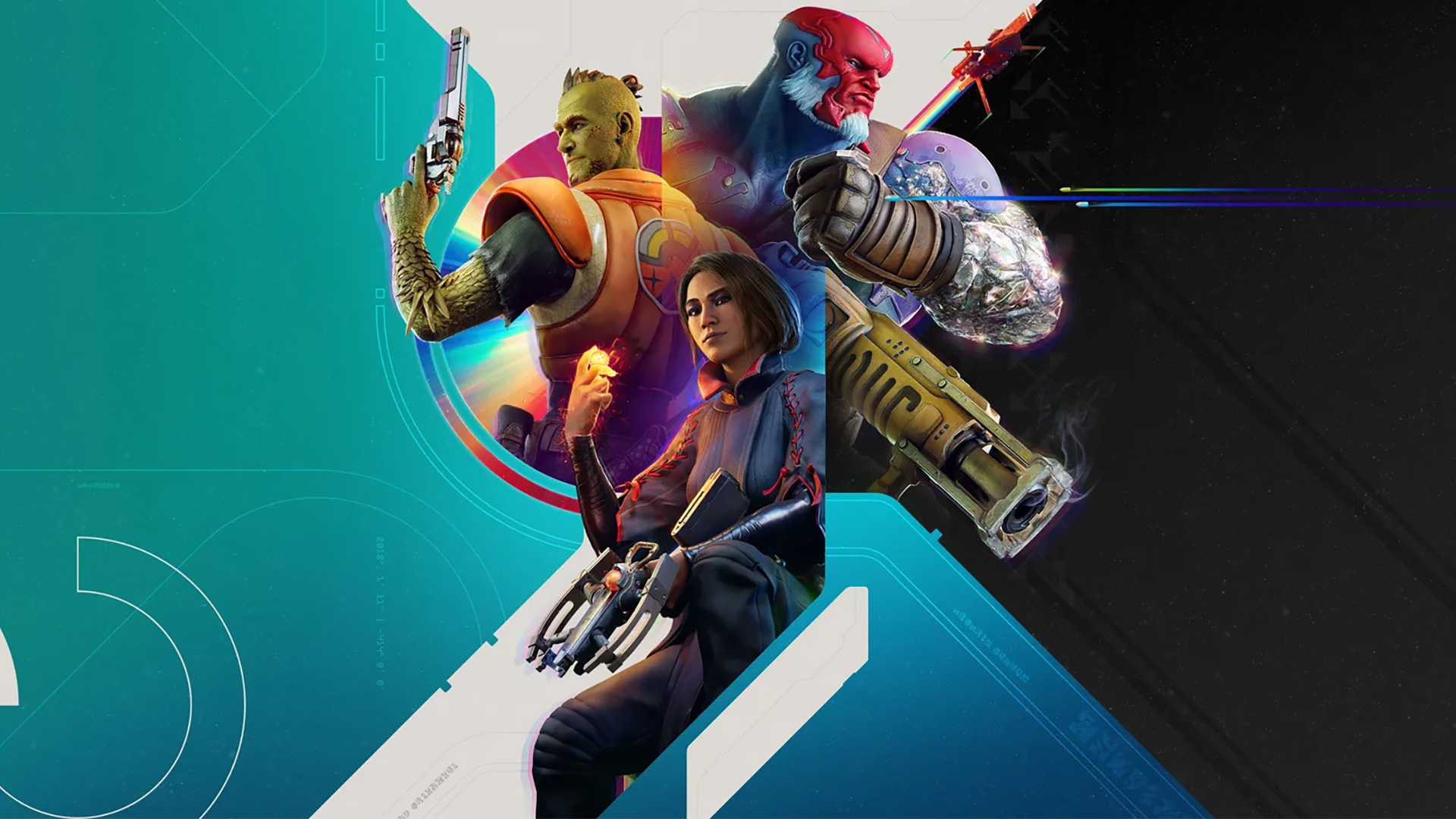
If you want to try something different in Concord, there are obstacle course time trials with a global leaderboard. Inspired by Titanfall 2’s Gauntlet (which remains undefeated, of course), these give you insight into the moves and abilities of certain heroes and are a nice little addition to get you used to the game.
There’s a lot to take in, and it’s not helped by the cardinal sin of storytelling, telling rather than showing. The Galactic Guide contains pages of lore that are meant to give you a better feel for the galaxy you’re fighting in, but ultimately leave you with more questions than answers. For example, if the villainous Guild is such an ever-present threat, why am I only fighting other freegunners? Trying to add more depth to the world only leads to logical contradictions that the game keeps reinforcing.
Firewalk has clearly invested a lot in creating a universe that falls somewhere between the childlike awe of Star Wars and the cynical adolescence of Guardians of the Galaxy, but the roster is heavy on characters and short on personality. The Galactic Guide tells us more than enough about each freegunner’s personality, but that doesn’t translate to what we see in the game. The result is a universe that relies on a lot of hackneyed cliches without offering anything original or engaging enough to make up for it. Because so few modes are offered at launch, the sheer amount of lore becomes even more confusing, and while Concord’s planned updates may fix the things that are currently lacking, it’s hard to see how they will improve the universe they’re set in.
Battle of Unity
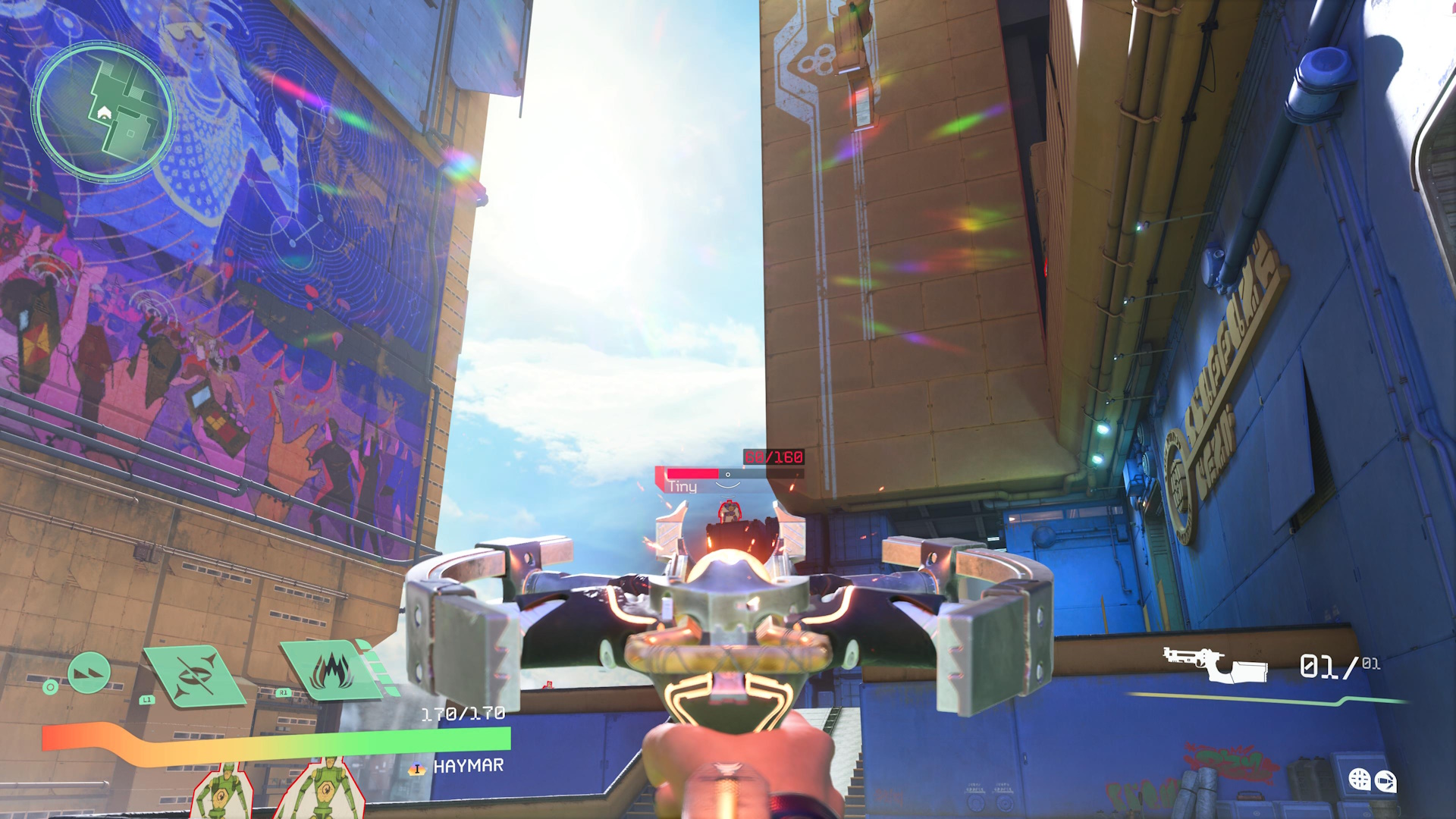
The main reason to stick with Concord right now is the Job Board. This is where you get new cosmetic items and character variants – unique passive abilities exclusive to that character. While the cosmetic items are your standard battle pass – though it must be stressed that they come at no additional cost – the character variants offer something actually worth pursuing. The first is for Teo, which changes his ability from increased mobility after a dodge to more ammo and ammo. This is a change that has fundamentally changed the way I play as Teo, as I enter firefights more aggressively and get more kills as a result. If variants can continue to provide tangible benefits to long-term players, this is at least one tangible way Concord can refocus on the game’s strengths and hopefully become the best version of itself.
Concord doesn’t deserve to be made a point of because of its low player count.
But this review is not about what Concord could be, it is about what it Is. And right now, it’s a multiplayer shooter that has more background in space trade routes than it does in game modes. For all its strong fundamentals – the real differences between characters and the strategic possibilities of its clever class systems – there’s just not enough to recommend it right now, especially when the game’s characters and setting don’t evoke strong feelings. Concord doesn’t deserve to be a punchline about low player counts, but it also doesn’t offer enough to make it your next multiplayer obsession.
Concord was tested on PS5 using a code provided by the publisher.

